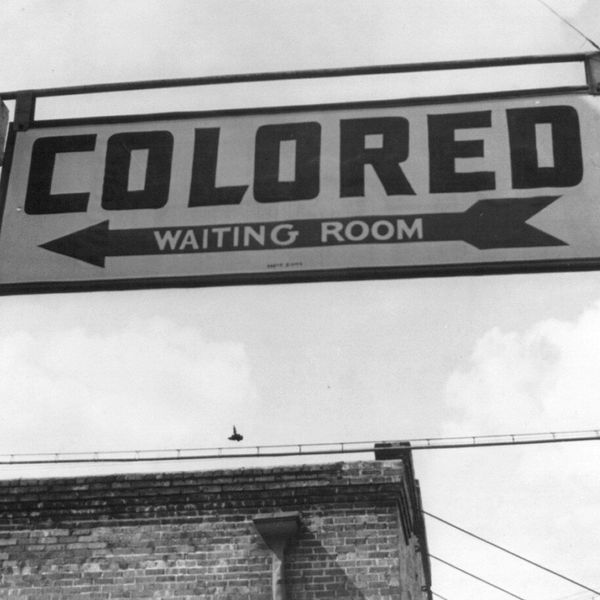People don't usually associate the term eugenics with America. Eugenics is usually associated with darkest annals of human history, namely, Nazi Germany, compulsory sterilization, euthanasia, and mass extermination. What many Americans do not know is that America instituted eugenic legislation that mandated forced sterilization in 1927, before Nazi Germany. Even Hitler was impressed, stating ”There is today one state in which at least weak beginnings toward a better conception are noticeable. Of course, it is not our model German Republic, but the United States.” Eugenic legislation in America presents a shameful time in our history where our high-minded ideals of basic human rights were perverted by the whims of public opinion, and the pseudoscience of the day.
In the 1880, Sir Francis Galton, after studying Britain’s wealthy upper class, determined that they were of superior genetic makeup. He defined eugenics as the application of selective breeding to create a more ‘perfect’ human race, while preventing ‘imperfect’ humans from breeding at all. A prominent aspect of eugenics was Social Darwinism, which applied Darwin’s theory of ‘survival of the fittest’ to humans. The rational being that people such as criminals, substance abusers, prostitutes, and the mentally disabled were genetically harmful elements to society. These types of 'unwanted' people would then pass their ‘inferior' genes to their children which would produce further harm to society.
Besides for Darwin’s theories, eugenics was not backed by anything other than cultural anthropology, and a misunderstanding of mental illness. Since white society appeared to be more successful than non-whites societies, they assumed it was due solely to nurture rather than nature. The views of eugenics towards the mentally disabled were colored by the misunderstandings of mental illnesses. Certain mental illnesses were either incorrectly believed to be hereditary or they were not treated properly.
It should also be noted that eugenics is a broad term. Contraception and abortion are both eugenic practices because they prevent people from procreating. Where eugenics goes into inhumane territory is when it is applied to humans. Such as when genetically 'inferior' people are forced to give up their ability to procreate by was of either segregation, sterilization, or euthanasia.
During the turn of the 19th century eugenics was held up as the pinnacle of scientific discovery for western countries. The far reaching affects of this philosophy in American society were shocking. Prominent Americans that one might not expect such as Alexander Gram Bell, Hubert Hoover, Theodore Roosevelt, W.E.B Du Bois, and even Hellen Keller were all propionates of eugenics.
The popularity of eugenics in America eventually led to the implementation eugenic practices. The first state to introduce a compulsory sterilization bill was Michigan, in 1897, but the law failed to garner enough votes to be adopted. In 1907, Indiana passed the first eugenics-based compulsory sterilization law in the world. Thirty U.S. states would soon follow their lead. The 1927 Supreme Court case Buck v. Bell ruled in favor of forced sterilization of patients at a Virginia home for the mentally disabled. The state of California was at the vanguard of the American eugenics movement, performing about 20,000 sterilizations or one third of the 60,000 nationwide from 1909 up until the 1960s. Buck v. Bell was never overturned, and Virginia did not repeal its sterilization law until 1974.
Compulsory sterilization in America was not limited to the mentally disabled. Non-white women, in particular Native and Latin Americans, were victims of sterilization abuse up until the 1970s. Accounts show that non-white women were often threatened with the denial of welfare benefits or basic medical treatment until they ‘consented’ to sterilization. There have also been many instances where women unknowingly gave consent, since directions were not given in their native language.
In 1911, a Carnegie Institute report showed that euthanasia was the recommended ‘solution’ regarding eugenics, and that the most common suggestion was to set up gas chambers. Although the practice was met with skepticism, as eugenicists did not believe that America was ready for this kind of drastic eugenic program. Although this did not prevent many doctors by way of their own means to euthanize patients. As per example, doctors in a mental institution in Lincoln, Illinois fed incoming patents milk infected with tuberculosis, and other doctors practiced forms of lethal neglect.
What can we learn from this disgraceful failure? First, we must accept that despite the fact that we have a constitution, it does not protect us from implementing horrendously inhumane action. Americans need to be aware and must fight injustice on their own. America’s policies of eugenics prompts the edgy question of why did we not go down the route of Nazi Germany? What separated us? If it comes down to the German peoples’ fascist mentalities and a history of anti-Semitism then we walk a very fine line of public opinion, and if things in the unforeseeable future get out of hand we should know that we cannot solely rely on constitutional values to prevent us from losing our humanity.





















